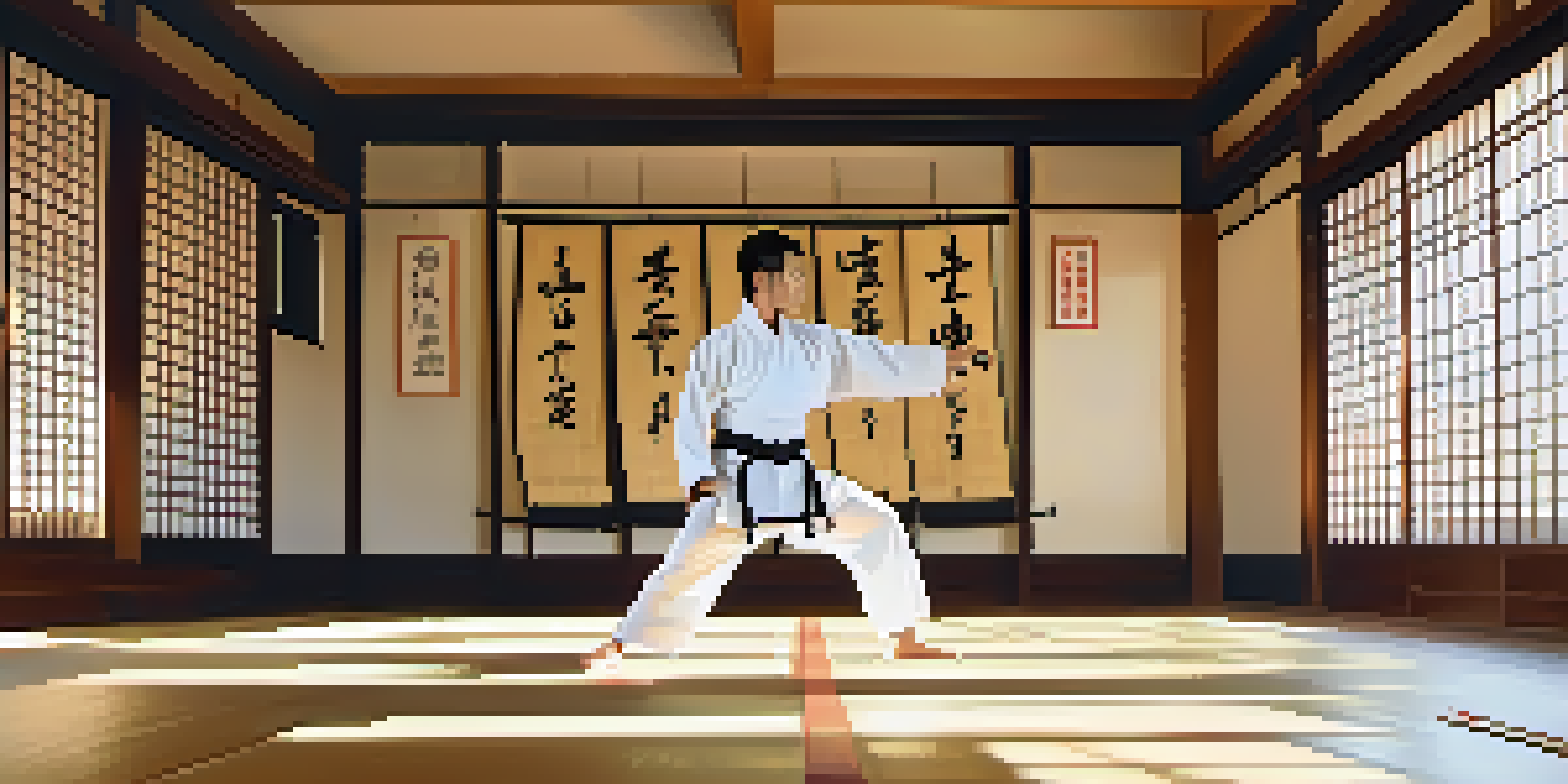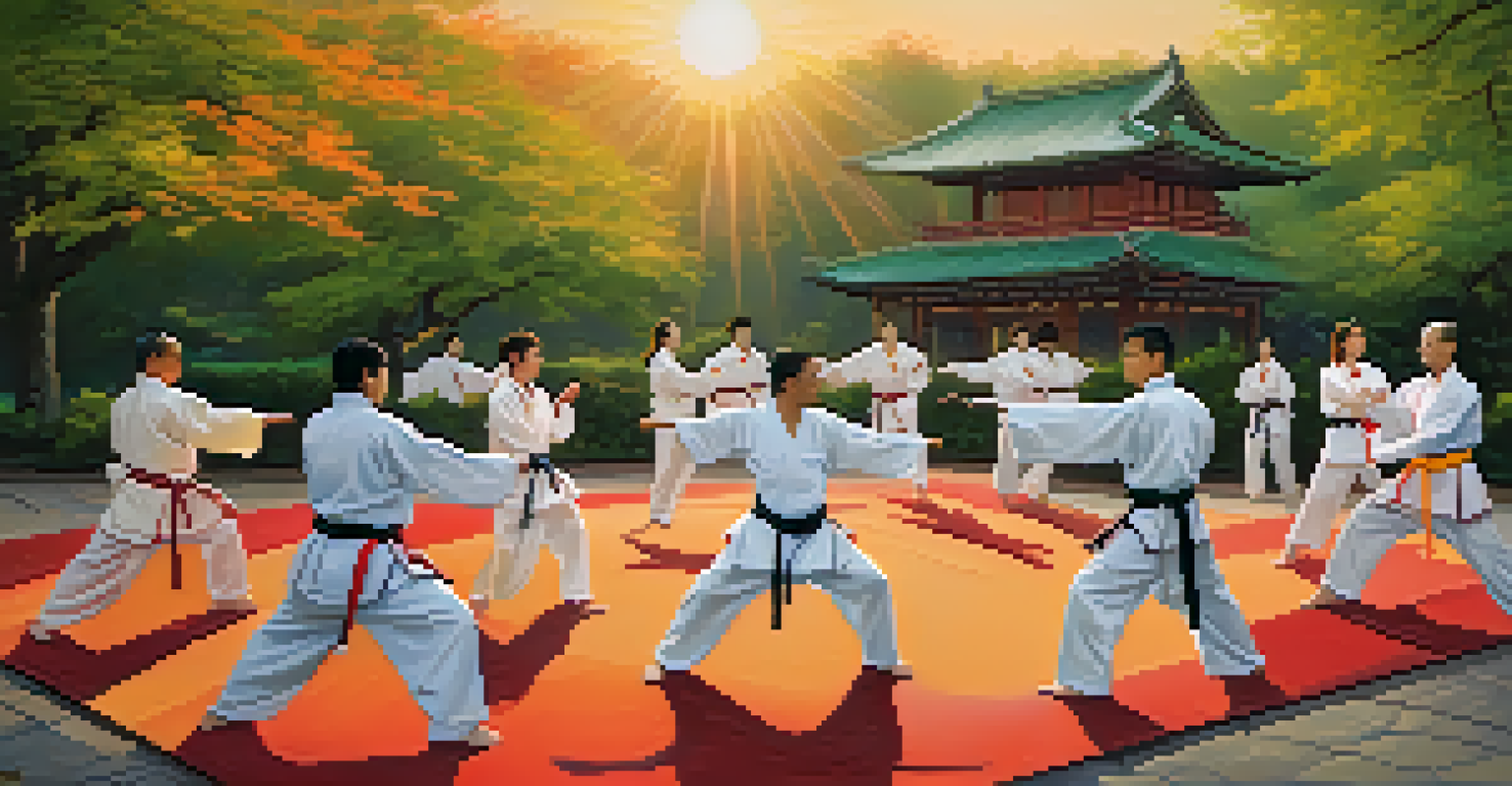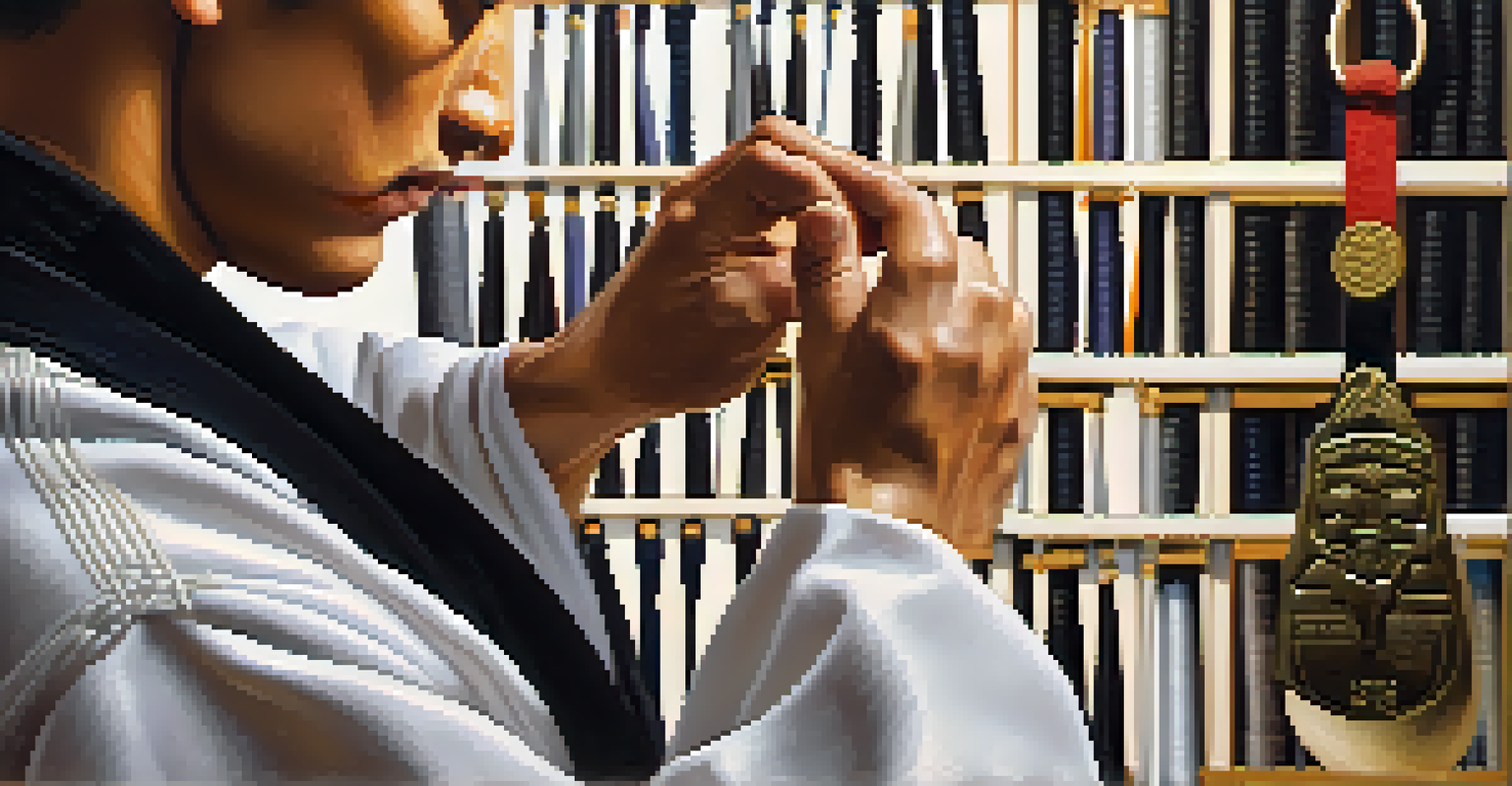Self-Defense and Adaptability: Life Lessons from Martial Arts

Understanding Self-Defense: More Than Physical Skills
Self-defense is often perceived as just a set of physical techniques aimed at protecting oneself. However, it encompasses a broader understanding of awareness, intuition, and the ability to assess situations. Martial arts emphasize the importance of being mindful of your surroundings, which can help you avoid potential confrontations altogether.
The greatest victory is that which requires no battle.
For instance, a martial artist learns to read body language and environmental cues, helping them anticipate threats before they escalate. This proactive approach fosters a sense of confidence and empowerment, allowing practitioners to navigate various situations with a clearer mindset. Ultimately, self-defense is about preparing mentally as much as physically.
By cultivating this awareness, individuals not only improve their capability to defend themselves but also enhance their overall approach to life. They become more adaptable, able to handle unexpected challenges that arise, both in and out of the dojo.
The Role of Adaptability in Martial Arts Training
Adaptability is a core principle in martial arts, teaching practitioners to adjust their techniques based on circumstances. Whether it’s changing strategies mid-fight or modifying movements to counter an opponent’s style, being flexible is essential for success. This constant adjustment mirrors real-life challenges, where conditions can shift unexpectedly.

For example, consider a karateka facing a sparring partner with a completely different skill set. They must quickly analyze their opponent’s strengths and weaknesses, adapting their approach to find an effective solution. This process not only hones their martial skills but also sharpens critical thinking and decision-making abilities.
Self-Defense Goes Beyond Techniques
Self-defense involves mental preparation and awareness, enabling individuals to navigate situations confidently and effectively.
Training in martial arts encourages individuals to embrace change rather than resist it. This mindset fosters resilience, helping practitioners tackle life's hurdles with a solution-oriented attitude, whether in personal relationships or in the workplace.
Building Confidence Through Martial Arts Practice
Engaging in martial arts can significantly boost self-confidence, a crucial component of self-defense. As individuals advance in their training, they gain not only skills but also a deeper belief in their abilities. This newfound confidence transcends the dojo, positively impacting various aspects of their lives.
Failure is simply the opportunity to begin again, this time more intelligently.
For instance, a person who once shied away from confrontational situations may find themselves more assertive and willing to speak up. This shift can lead to better communication in both personal and professional settings, as confidence often encourages a more proactive approach to challenges.
Moreover, the journey in martial arts teaches that failures are not setbacks but opportunities for growth. This understanding further fortifies self-esteem, as practitioners learn to embrace challenges with a positive outlook.
Discipline: The Foundation of Martial Arts and Life
Discipline is a fundamental aspect of martial arts training that extends well beyond the mat. Practitioners learn to commit to regular practice, follow structured routines, and respect the art form. This commitment cultivates a sense of responsibility and perseverance that can be applied to any goal in life.
For example, a student working towards a black belt must dedicate hours to perfecting techniques, often facing obstacles along the way. This journey instills a sense of discipline that translates into academic or career pursuits, where consistent effort is essential for success.
Adaptability is Key to Success
Martial arts training fosters adaptability, helping practitioners respond to changing circumstances both in combat and everyday life.
Ultimately, the lessons learned in martial arts about discipline create a strong foundation for achieving personal and professional objectives. It reinforces the idea that persistence and focus yield tangible rewards in any area of life.
The Importance of Respect in Martial Arts
Respect is a cornerstone of martial arts philosophy, impacting how practitioners interact with others. This value is ingrained in training, where students learn to respect their instructors, peers, and the discipline itself. Such an environment fosters a sense of community and support, essential for growth.
In practice, respect manifests in various ways, from bowing before entering the dojo to helping fellow students improve their skills. This culture of mutual respect cultivates empathy, teaching individuals to appreciate different perspectives and experiences.
Carrying this respect into everyday life enhances interpersonal relationships, as individuals become more understanding and considerate. The ability to connect with others on a deeper level can lead to more meaningful interactions and a stronger support network.
Embracing Failure: A Key Lesson from Martial Arts
Failure is often viewed negatively, but in martial arts, it is an integral part of the learning process. Practitioners quickly realize that mistakes are opportunities for improvement, whether it’s a misstep during a sparring session or a failed technique. This acceptance encourages a growth mindset, vital for personal development.
For instance, a student may struggle to execute a particular move, only to find that through perseverance and practice, they can master it over time. This journey reinforces the idea that failure is not the end but a stepping stone to success.
Martial Arts Build Confidence
Engaging in martial arts enhances self-confidence, empowering individuals to face challenges assertively and positively.
By embracing failure, individuals develop resilience and the ability to bounce back from setbacks, a trait that proves invaluable in everyday life. This perspective allows them to approach challenges with optimism, knowing that each stumble can lead to greater mastery.
Applying Martial Arts Principles to Everyday Life
The principles learned through martial arts training can be applied to various aspects of life, from personal growth to conflict resolution. Skills such as adaptability, discipline, and respect provide a framework for navigating challenges outside the dojo. This holistic approach fosters well-rounded individuals ready to tackle whatever life throws their way.
For instance, someone trained in martial arts may find themselves better equipped to manage stress at work or handle conflicts in relationships. By employing the same techniques of awareness and adaptability learned in practice, they can approach difficult situations with a clearer mindset.

Ultimately, the life lessons derived from martial arts extend beyond self-defense; they empower individuals to lead more fulfilling and resilient lives. By integrating these principles, anyone can cultivate a stronger sense of self and navigate their journey with confidence.